2022 Annual Meeting
speakers
Keynote speakers
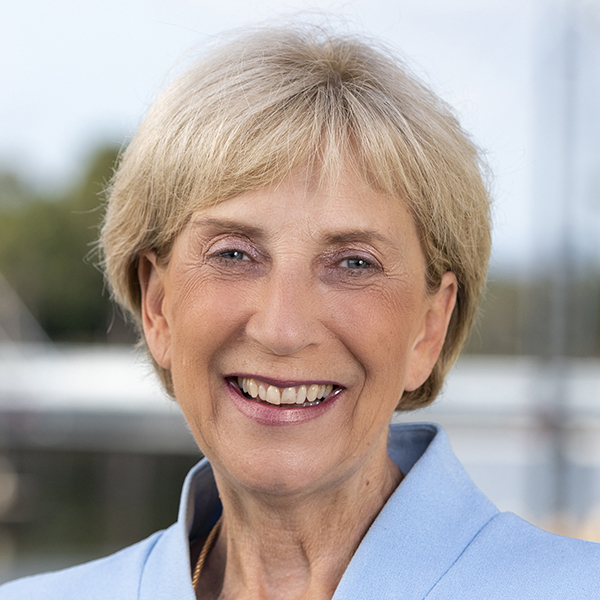
Amanda Lacaze
CEO and Managing Director Lynas Rare Earths
Lacaze is the CEO and managing director of Lynas Rare Earths, the world’s only scale producer of separated rare earth materials outside China. Her company, Lynas, is an environmentally responsible producer of rare earth materials essential to future-facing and green technologies, including electric vehicles, electronics, and wind turbines. It operates the high-grade, Tier 1 Mt Weld resource in Western Australia and a proven processing facility in Malaysia. The company is building a $500m rare earth processing facility in Kalgoorlie, Western Australia, and is planning to construct a heavy rare earths and light rare earths separation facility in the United States on the Gulf Coast of Texas. Lacaze was appointed CEO in 2014 and successfully led the company through a challenging turnaround. Early in her career, Lacaze developed deep management and marketing experience, leading to positions across many industries, including telecommunications, agriculture, and fast-moving consumer goods. She was recognized as CEO of the Year in the 2018 MiningNews.net Awards and in 2021 and 2019 and was named in the Australian Financial Review Magazine’s Power List as one of the 10 most influential corporate leaders. Lacaze is a board member of the Minerals Council of Australia and a member of Chief Executive Women and the Australian Institute of Company Directors.
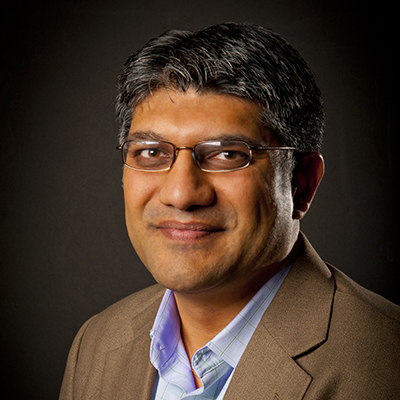
Jigar Shah
Director, Loan Programs Office U.S. Department of Energy
Shah is the Loans Programs Office’s director at the United States Department of Energy. He was most recently co-founder and President at Generate Capital, where he focused on helping entrepreneurs accelerate decarbonization solutions through the use of low-cost infrastructure-as-a-service financing. Prior to Generate Capital, Shah founded SunEdison, a company that pioneered “pay as you save” solar financing. After SunEdison, Shah served as the founding CEO of the Carbon War Room, a global non-profit founded by Sir Richard Branson and Virgin Unite to help entrepreneurs address climate change. Originally from Illinois, Shah holds a B.S. from the University of Illinois-UC and an MBA from the University of Maryland College Park.
Speakers
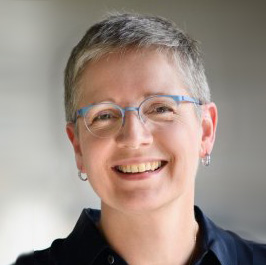
Claire F. Gmachl
Interim Director of the Andlinger Center for Energy and the Environment; Eugene Higgins Professor of Electrical Engineering; Head of Whitman College, Princeton University
Gmachl is interim director of the Andlinger Center for Energy and the Environment, the Eugene Higgins Professor of Electrical Engineering, and head of Whitman College at Princeton University. Her research group works on the development of new quantum devices, especially lasers, and their optimization for systems applications ranging from sensors to optical communications. Gmachl received her Ph.D. in 1995 from the Technical University of Vienna (Austria). She worked for seven years at Bell Labs, where she worked on quantum cascade lasers. She joined Princeton University in 2003 and received a MacArthur Foundation fellowship in 2005.
From 2006 to 2016, Gmachl directed the Engineering Research Center for Mid-Infrared Technologies for Health and the Environment (MIRTHE), headquartered at Princeton. MIRTHE is a National Science Foundation Engineering Research Center with partners including the City College New York, Johns Hopkins University, Rice University, Texas A&M, and the University of Maryland-Baltimore County. The center encompasses a world-class team of engineers, chemists, physicists, environmental and bioengineers, and medical doctors. MIRTHE developed infrared optical trace gas sensing systems based on new technologies, such as quantum cascade lasers or quartz-enhanced photo-acoustic spectroscopy, with the ability to detect minute amounts of chemicals found in the environment or atmosphere, emitted from spills, combustion, or natural sources, or exhaled in human breath.
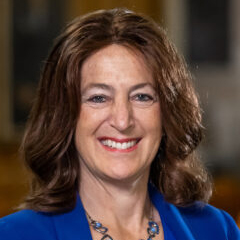
Andrea J. Goldsmith
Dean, School of Engineering and Applied Science; Arthur LeGrand Doty Professor of Electrical and Computer Engineering, Princeton University
Goldsmith is the dean of the School of Engineering and Applied Science and the Arthur LeGrand Doty Professor of Electrical and Computer Engineering at Princeton University. She was previously the Stephen Harris Professor of Engineering and professor of electrical engineering at Stanford University, where she is now the Harris Professor Emerita. Her research interests are in information theory, communication theory, and signal processing, and their application to wireless communications, interconnected systems, and biomedical devices. She founded and served as chief technical officer of Plume WiFi (formerly Accelera, Inc.) and of Quantenna, Inc. Goldsmith serves on the board of directors for Intel, Medtronic, Crown Castle Inc., and the Marconi Society. She also serves on the President’s Council of Advisors on Science and Technology (PCAST) for the White House.
Goldsmith is a member of the National Academy of Engineering, the Royal Academy of Engineering and the American Academy of Arts and Sciences. She is a fellow of the IEEE and has received several awards for her work, including the Marconi Prize, the ACM Sigmobile Outstanding Contribution Award, the IEEE Sumner Technical Field Award, the ACM Athena Lecturer Award, the ComSoc Armstrong Technical Achievement Award, the Kirchmayer Graduate Teaching Award, the WICE Mentoring Award, and the Silicon Valley/San Jose Business Journal’s Women of Influence Award. She is the author of the book “Wireless Communications,” co-author of several other books, all published by Cambridge University Press, and an inventor on 29 patents. Goldsmith received a B.S., M.S., and Ph.D. in electrical engineering from University of California-Berkeley.
Goldsmith is currently the founding chair of the IEEE Board of Directors’ Committee on Diversity and Inclusion. She served on the board of governors for both the IEEE Information Theory and Communications Societies. At Stanford, she served on several committees as part of the faculty senate, particularly those focused on women and leadership, undergraduate education, planning, and research.
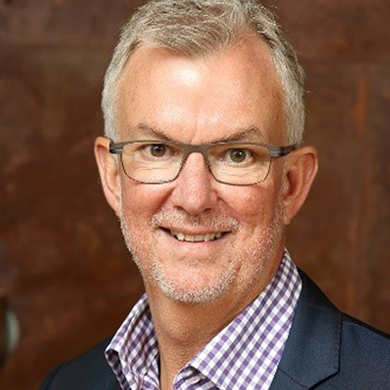
Chris Greig
Theodora D. ’78 and William H. Walton III ’74 Senior Research Scientist, Andlinger Center for Energy and the Environment, Princeton University
Greig joined Princeton in 2020 to continue his leadership of the Rapid Switch initiative following a successful two-year appointment as the Gerhard R. Andlinger Visiting Fellow in Energy and the Environment at the Andlinger Center. Greig co-led Princeton’s Net-Zero America (NZA) study, which identified five technological pathways to achieve net-zero emissions in the U.S. by 2050, and is contributing to NZA-inspired studies for Australia and Asia. Prior to joining Princeton, Greig was director of the Dow Centre for Sustainable Engineering Innovation at The University of Queensland (UQ) in Australia and the founding director of the UQ Energy Initiative.
During a 25-year career in industry, Greig held senior executive roles in the energy and resources sectors, including CEO of ZeroGen, a large-scale carbon capture and storage project. He also served as chairman of the Energy Policy Institute of Australia and deputy chairman of Gladstone Ports Corporation. His research explores the technical, social, and business challenges of rapid, large-scale decarbonization of energy and industrial sectors. Greig has a Ph.D. in chemical engineering and is a fellow of the Australian Academy of Technology and Engineering.

Jesse Jenkins
Assistant Professor of Mechanical and Aerospace Engineering and the Andlinger Center for Energy and the Environment, Princeton University
Jenkins is an assistant professor and macro-scale energy systems engineer at Princeton University with a joint appointment in the Department of Mechanical and Aerospace Engineering and the Andlinger Center for Energy and Environment. He leads the Princeton ZERO Lab (Zero-carbon Energy systems Research and Optimization Laboratory), which focuses on improving and applying optimization-based energy systems models to evaluate and optimize low-carbon energy technologies, guide investment and research in innovative energy technologies, and generate insights to improve energy and climate policy and planning decisions. Jenkins earned a Ph.D. and M.S. from MIT, worked previously as a postdoctoral fellow at the Harvard Kennedy School, and spent six years as an energy and climate policy analyst. Jenkins recently served on the National Academies of Science Engineering and Medicine expert committee on Accelerating Decarbonization of the U.S. Energy System, was a principal investigator and lead author of Princeton’s landmark Net-Zero America study, and leads the REPEAT Project (repeatproject.org), which provides regular, timely, and independent environmental and economic evaluation of federal energy and climate policies as they are proposed and enacted. Jenkins has delivered invited testimony to multiple Congressional committees and his research is regularly featured in major media outlets. He regularly provides technical analysis and policy advice for non-profit organizations, policymakers, investors, and early-stage technology ventures working to accelerate the deployment of clean energy.
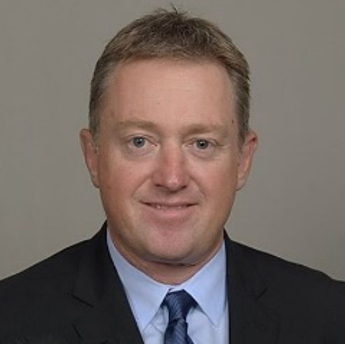
Sean Kelleher
Senior Group Director of Finance, Worley
Kelleher is the senior group director of finance for Worley in the Americas. In this role, he is responsible for providing financial and commercial services and business partnering support to operational leaders for Worley’s businesses throughout the USA, Canada, Central, and South America. Kelleher joined Worley in 2005 in the corporate finance team before moving to Houston in 2009 to lead finance for the USA and LAC region. Following that, he was responsible for the Major Projects and Integrated Solutions businesses globally. Kelleher has over 15 years of experience across a multitude of energy sectors including oil and gas, minerals and metals, power, and new energy, and has experience with consulting efforts through to major capital projects. Prior to Worley, Kelleher held numerous senior finance positions with GrainCorp in Australia. He holds a bachelor of business degree in accounting from the University of New England and is a member of CPA Australia.
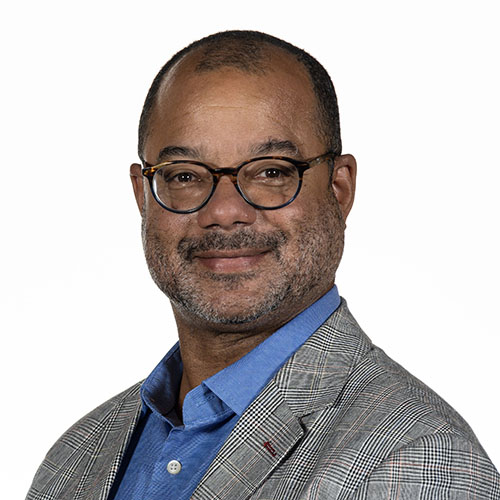
Marcus King
Professor of the Practice in Environment and International Affairs, Edmund A. Walsh School of Foreign Service, Georgetown University
King is Professor of the Practice in Environment and International Affairs at Georgetown University’s Edmund A. Walsh School of Foreign Service. King also draws on experience from a number of governmental and non-governmental organizations including CNA Corporation’s Center for Naval Analyses, and as research director of the Sustainable Energy Institute. He has held Presidential appointments in the Office of the Secretary of Defense, where he represented the United States for negotiation of the UN Framework Convention on Climate Change, and the Office of the Secretary of Energy. King maintains expertise in areas including environmental security, climate change, and conflict and transnational security. His most recent book is “Water and Conflict in the Middle East” (Oxford University Press, 2020). King is Vice Chairman of the Council on Strategic Risks and a member of the Center for Climate and Security’s Advisory Board.
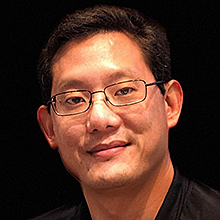
Anthony Ku
Co-chair of the Industrial Advisory Board, IRTC-Business
Ku is currently an independent consultant serving clients in the areas of clean energy, materials, and sustainability. He currently co-chairs the Industry Advisory Board of the EU’s International Roundtable on Critical Materials-Business (ITRC-Business) group. He is formerly the Chief Technology Officer at NICE America, a clean energy technology incubator affiliated with China Energy, with responsibilities for strategy and technical execution in areas related to carbon management, hydrogen infrastructure development, shale gas technology, and energy management. Prior to joining NICE, Ku was a Senior Engineer at GE Global Research where he led advanced materials development projects and delivered three products to market. Anthony has been active in materials sustainability for over a decade, including coordination of GE’s internal critical materials assessments and responses, and chairing the Industrial Advisory Board for the EU’s International Roundtable on Critical Materials. He holds a Ph.D. degree in chemical engineering from Princeton University and M.S. and B.S. degrees in chemical engineering from MIT.

Eric Larson
Senior Research Engineer, Energy Systems Analysis Group, Andlinger Center for Energy and the Environment, Princeton University
Larson heads the Andlinger Center’s Energy Systems Analysis Group. He also has affiliations with the Center for Policy Research on Energy and Environment in the School of Public and International Affairs and the High Meadows Environmental Institute. He holds an appointment as a senior scientist with Climate Central. He co-led Princeton’s Net-Zero America project and is active in other Rapid Switch projects. Originally trained in mechanical engineering, his research intersects engineering, environmental science, economics, and public policy. His research aims to identify sustainable, engineering-based solutions to major energy-related problems, especially climate change, and to inform public policy and private-sector decision-making. He has done extensive work on the design and assessment of advanced systems for the production of clean transportation fuels and electricity from biomass and fossil fuels with CO2 capture and storage, among other topics. He holds a BSE from Washington University (St. Louis) and a Ph.D. from the University of Minnesota (Minneapolis).

Matthew Levinger
Research Professor of International Affairs; Director of the National Security Studies Program; Director of the Master of International Policy and Practice Program, Elliot School of International Affairs, The George Washington University
Levinger is research professor of international affairs at the George Washington University. He directs the National Security Studies Program, an executive education program for senior officials from the U.S. government and its international partners, as well as the Master of International Policy and Practice Program at GW’s Elliott School of International Affairs. Before joining GW, he was senior program officer at the United States Institute of Peace, where he developed and taught executive education programs on international conflict analysis and prevention for foreign policy professionals from the United States and overseas. From 2005 to 2007, Levinger was founding director of the Academy for Genocide Prevention at the U.S. Holocaust Memorial Museum. At the Holocaust Museum, he played a key role in launching “Crisis in Darfur,” a joint initiative of the museum and Google Earth, as well as the Genocide Prevention Task Force, co-chaired by former Secretary of State Madeleine Albright and former Secretary of Defense William Cohen. Before moving to Washington, he was associate professor of history at Lewis & Clark College in Portland, Oregon; he has also taught at Stanford University. In 2003-2004, he was a William C. Foster Fellow at the U.S. Department of State. He has consulted for organizations including the World Bank, IREX, the National Democratic Institute, and the UN Department of Peacekeeping Operations.
Levinger’s research and teaching have focused on conflict analysis and prevention, as well as the history of nationalism, revolutionary politics, and genocide. His handbook Conflict Analysis: Understanding Causes, Unlocking Solutions was published by the U.S. Institute of Peace Press in 2013. He is also the author of Enlightened Nationalism: The Transformation of Prussian Political Culture, 1806-1848 (Oxford, 2000) and co-author of The Revolutionary Era, 1789-1850 (Norton, 2002). He received his B.A. from Haverford College and his Ph.D. in history from the University of Chicago.

Yueh-Lin (Lynn) Loo
Chief Executive Officer, Global Centre for Maritime Decarbonisation; Former Director, Andlinger Center for Energy and the Environment; Theodora D. ’78 and William H. Walton III ’74 Professor in Engineering, on leave from Princeton University
Loo is the chief executive officer of the Global Centre for Maritime Decarbonisation (GCMD), a non-profit organization based in Singapore. Established by six founding partners from the maritime industry and supported by the Maritime and Port Authority of Singapore in 2021, GCMD’s mission is to help the sector accelerate its decarbonization efforts through shaping standards, deploying solutions, financing projects and fostering collaboration across sectors. In the year since its founding, Lynn led GCMD in commissioning a study to define the safety and operational envelopes for bunkering ammonia, and a drop-in biofuels pilot involving 12 vessels bunkering at three ports on three different continents to bolster the integrity of green fuels supply chain. Lynn also broadened GCMD’s circle of partners by bringing in integrated energy companies, a management consulting firm, a law firm and several trade associations. In this capacity, she sits on the board of the Global Maritime Forum and is an advisory director to 2050, a venture capital firm focusing on the built environment.
Loo is also the Theodora D. ’78 and William H. Walton III ’74 Professor in Engineering, and Professor of Chemical and Biological Engineering, at Princeton University. Before GCMD, she was director of the Andlinger Center for Energy and the Environment, where she commissioned the Rapid Switch Initiative and the Net-Zero America Study, which has provided unprecedented temporal and geographic granularity on pathways for the US to navigate the energy transition. This report has been socialized extensively among senior members of the Biden administration, and has influenced the thinking of investors and key decision makers. She also founded Princeton E-ffiliates Partnership, a flagship corporate partner program to engage industry, and she launched Princeton’s first executive program in partnership with the World Economic Forum to contextualize the complexities of the energy transition for business leaders.
Loo received BSEs in chemical engineering and materials science and engineering from the University of Pennsylvania and her PhD in chemical engineering from Princeton University. She is co-founder of Andluca Technologies, a startup developing wireless smart window retrofits to increase building energy efficiency and occupant comfort. For the development of this technology, she and her team received the 2020 Thomas Edison Patent Award from the NJ Council of Research and Development. An academic of twenty years, she has trained more than 100 postdoctoral graduates, graduate students, and undergraduates. She is a prominent researcher in organic and hybrid electronics. Her scholarly work on developing solar cells and opto-electronics with emerging classes of materials has been recognized by numerous accolades, including Sloan and Beckman Fellowships, the John H. Dillon Medal from the American Physical Society, and the Alan P. Colburn Award from the American Institute of Chemical Engineers. She is a Young Global Leader with the World Economic Forum and a fellow of the American Physical Society and the Materials Research Society.

Morielle Lotan
CEO and Founder, MILE Ventures and Climate180
Lotan is a published academic, entrepreneur and businesswoman, CEO of MILE Ventures, co-founder of Climate180, and, as a member of the international intelligence community, spends her time focused on the crossroads between energy and security.
MILE Ventures specializes in growth strategy and business development by providing tailored strategy and business development solutions for clients in different stages of growth. Lotan works with CEOs from disruptive startup industries, including Israel’s only nuclear fusion start-up, energy and security, in addition to advising investors and has served as an M&A advisor for Goldman Sachs.
Climate180 brings together a select group of clean energy and envelope technology companies along with financial investors, government decision-makers, and industry representatives in order to advance solutions for the energy challenges to address climate needs. Prior to starting MILE Ventures and Climate180, Lotan served as the chief innovation officer at USGRDCO where she was responsible for building the company’s innovation strategy, raising significant capital and fostering strategic partnerships with the public and private sector.

Ryo Okumura
Department Manager; Upstream and Carbon Management Lead; Diamond Climate Impact Ventures (DCIV) BE Catalyst Team; EX Taskforce, Mitsubishi Corporation
Okumura has had an extensive career of over 20 years in energy and carbon management project development and operation at multiple global offices of Mitsubishi Corporation since 2002. His significant achievement was the successful deal delivery of the world-scale GHG Emission Reduction project in Southern Iraq, “Basrah Gas Company” in 2012. In the U.S., he has been leading decarbonization business development and directing corporate venturing since 2018 and led the establishment of a new cross-vertical carbon management organization, “Diamond Low Carbon Ventures” in 2019, and the participation in the Catalyst program by Breakthrough Energy through his “Diamond Climate Impact Ventures” initiative in 2022. Okumura graduated from Kobe University, Faculty of Business Administration in 2002 and completed Advanced Management Program at IMD in 2018.
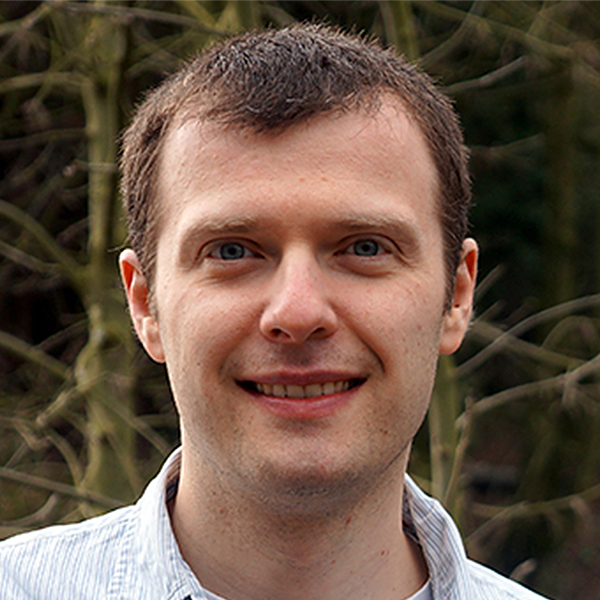
Barry Rand
Associate Director for External Partnerships, Andlinger Center for Energy and the Environment; Associate Professor of Electrical and Computer Engineering and Andlinger Center for Energy and the Environment, Princeton University
Rand joined the Princeton University faculty in 2013 holding a joint appointment in the Department of Electrical and Computer Engineering and the Andlinger Center for Energy and the Environment, and is currently associate professor. Rand’s research interests highlight the border between electrical engineering, materials science, chemistry, and applied physics, covering electronic and optoelectronic thin-films and devices. He has authored approximately 140 refereed journal publications and holds 23 issued U.S. patents. He has received several awards and accolades, including the 3M Nontenured Faculty Award (2014), DuPont Young Professor Award (2015), DARPA Young Faculty Award (2015), and ONR Young Investigator Program Award (2016). Rand earned a B.E. in electrical engineering from The Cooper Union in 2001 and received M.A. and Ph.D. degrees in electrical engineering from Princeton University. From 2007 to 2013, he was at imec in Leuven, Belgium, ultimately as a principal scientist, researching the understanding, optimization, and manufacturability of thin-film solar cells.

Sri Sekar
Climate Finance Lead, Deloitte
Sekar is the Climate Finance Lead for Deloitte’s International Development practice. He has over 15 years of experience in the sustainable infrastructure development, finance, and policy space, during which he has directly led or advised public and private sector clients on the development of climate resilient infrastructure. Spanning multiple continents, Sekar has brought clean energy projects to financial close across various markets, contractual terms and conditions, and complex policy environments. As an advisor to clients such as the World Bank, U.S. Agency for International Development, and the U.S. Department of State, Sekar has provided guidance on de-risking energy and critical mineral projects, structuring climate-based credit enhancement facilities, standing up voluntary carbon markets, and developing bankable business models for waste management service delivery in emerging market urban environments. At GE, Sekar managed over $500 million in utility-scale renewable energy deals, and in his policy role as the Mayor of the District of Columbia, he spearheaded reforms to the tax increment financing of the city’s vertical infrastructure. He holds a J.D. from George Washington University and an M.B.A. from Georgetown University.
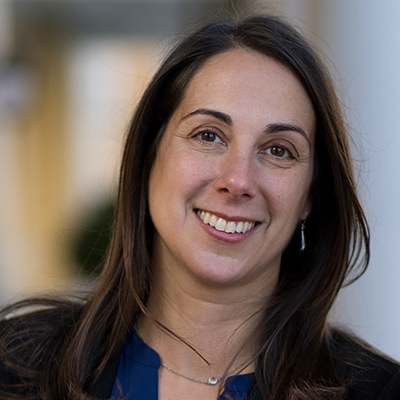
Bella Tonkonogy
U.S. Director, Climate Policy Initiative (CPI)
Tonkonogy is U.S. Director at Climate Policy Initiative (CPI), an analysis and advisory international non-profit organization working at the nexus of finance and policy for climate change. She oversees research and new initiatives across CPI’s climate finance workstreams including investment trends analysis, financial sector alignment and effectiveness, and innovative finance. Tonkonogy previously oversaw energy and environment investments at the U.S. Department of the Treasury and was a climate economist at the U.S. EPA and OECD. She holds an MBA from MIT Sloan School of Management, an MSc from Imperial College London, and a B.A. from the University of California-Berkeley.

